How a 100-year-old watch brand came back to Switzerland

Switzerland's century-old Milus watch brand was acquired by Chinese investors in 2003, only to be bought back by a member of Swiss watchmaking royalty. Now, the company finds itself in the position of a startup trying to make it in today's timepiece market.
“I am certainly the first Swiss to acquire a watch brand from the Chinese,” says 82-year-old Luc Tissot with a laugh.
He is the last living member of the Tissot watchmaking dynasty, founders of the celebrated eponymous Neuchâtel watch brand. Having acquired Milus from its Chinese owners in 2016, Tissot is energetic and enthusiastic when it comes to the task of harnessing the brand’s glorious past to propel it into the 21st century.
Founded in 1919 by Paul William Junod, Milus is this year celebrating its 100th anniversary. Over the decades, the brand acquired a solid reputation among those passionate about beautiful watchmaking. Its standout collection pieces include the Snow Star, which was part of the survival kit given to American pilots during the Second World War, and Archimedes, a 1970s diving watch.
Strategic error
A family-owned business for three generations, Milus was sold to Chinese investors in 2003. First held by the Peace Mark group, the Bernese brand was later sold to the Chow Tai Fook conglomerate in 2008.
But although major investments were made, including the refurbishment of the brand’s premises, the Chinese experience ended in failure.
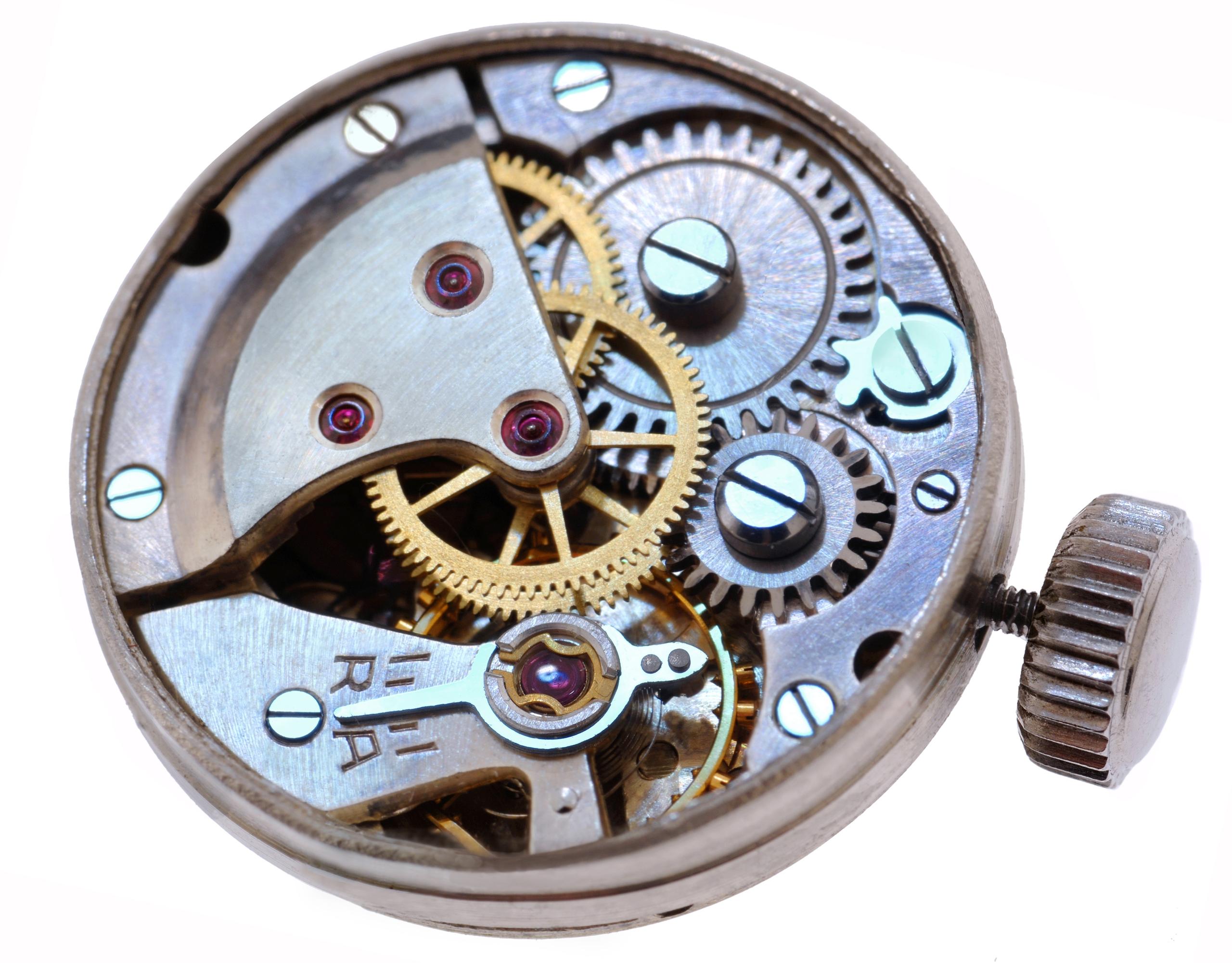
More
Six things you should know about the watchmaking industry
Tissot says that the former managers committed a major strategic error in trying to position the brand in the luxury prestige segment, with pieces priced between CHF5,000 and CHF30,000 ($5,062 to $30,372). Previously, Milus had offered very beautiful watches at affordable prices of between CHF1,000 and CHF2,000, he says.
Experienced in the jewellery sector, Chow Tai Fook failed to grasp the complexities of the watch sector, where the symbiosis between technicality and emotion is essential to commercial success, Tissot believes. Problems of cultural incompatibility between the Swiss management and the Chinese, as other watch brands like Corum or Eterna have also experienced, had a negative impact on the workers’ motivation.
Acquisition quickly negotiated
Approached by an acquaintance in early 2016, Tissot was easily seduced by the idea of relaunching the troubled brand.
For the octogenarian from Neuchâtel, taking the reins of Milus is a return to his roots after a professional career in medical technology (see box).
“Making money has never been my primary motivation. I have always been guided by the desire to value the heritage and know-how of local industries. The acquisition of Milus, which has a real historical value, fits perfectly with that philosophy,” says Tissot.
Surrounded by a small team of young specialists, Tissot wants to revive the DNA of the brand by offering beautifully designed, elegant and understated timepieces that are impeccably finished but which carry an affordable price tag.
“We must have a clear line, a Milus must be recognisable at first glance. Our big advantage is these 100 years of history. It’s what enables us to distinguish ourselves from a new brand that must develop its image from scratch,” he says.
100-year-old start-up
Betting on tradition, yes, but with the tools of 2019.
“Milus is a kind of 100-year-old start-up,” says Tissot adding that the digital revolution offers a formidable opportunity for brands like Milus.
Thanks to the rise of e-commerce, which has been embraced by the luxury watchmaking sector, Milus can reach consumers without having to pay large sums for space in watch boutiques around the world.
“We are not totally neglecting the physical points of sale. But we look at them more as showrooms where the buyer can try their time piece before purchasing it online,” Tissot explains.
Internally also, digitalisation is greatly helping the work of Milus’s employees, who are mostly occupied with the design, development and marketing of the brand. The production of the different components, assembly and after sales service are outsourced to industrial partners in the Jura region, the cradle of Swiss watchmaking.
“The development of the network enables us to be very reactive and to check in real time the quality of the products ordered,” says Tissot.
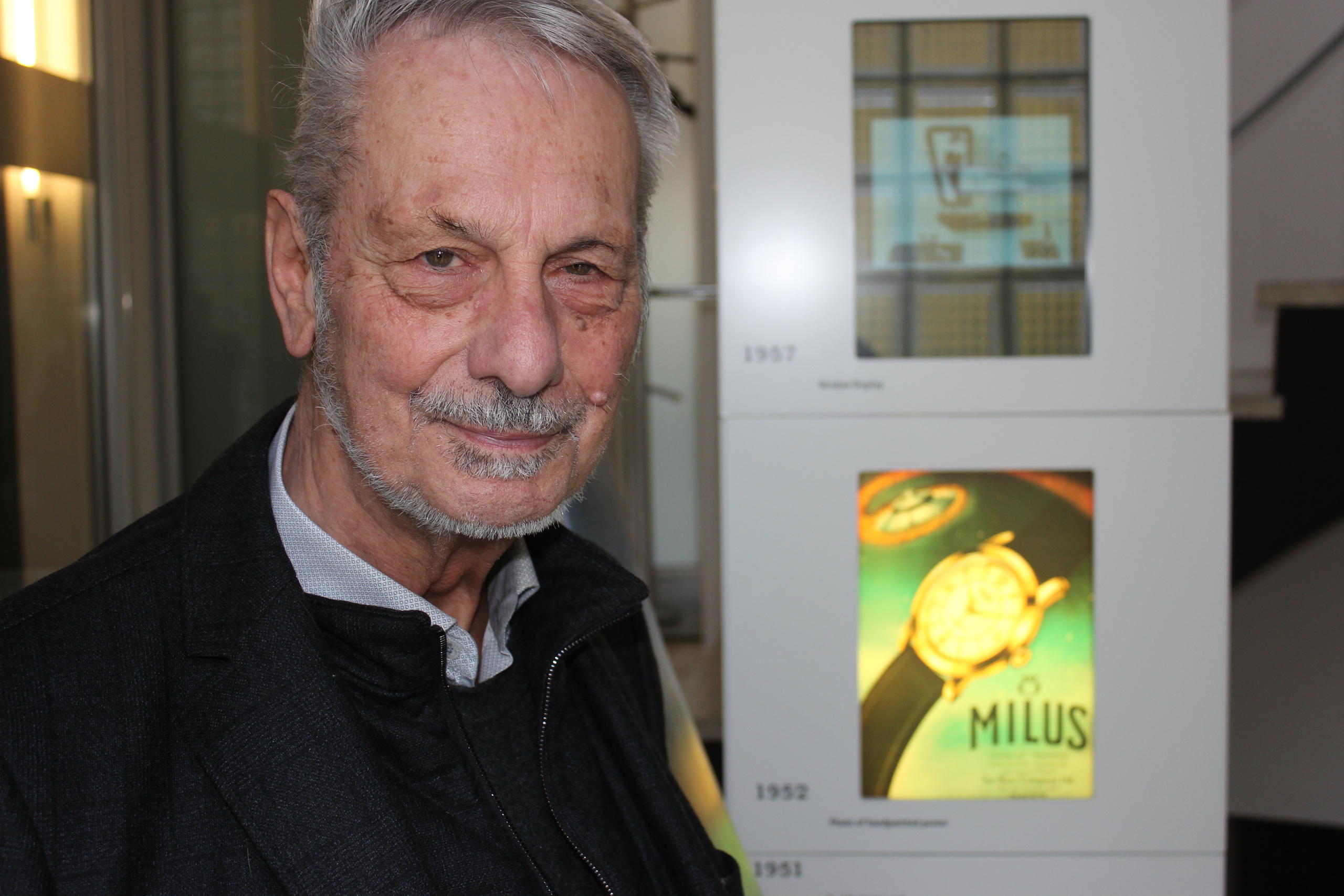
5,000 watches a year?
Today, Milus is still in the relaunch phase. Tissot, who has set the ambitious target of selling 5,000 watches per year, says initial sales in Switzerland, Germany, France and the United States “are promising”.
Such a volume would put Milus amongst the major “Swiss Made” independent labels in the middle of the market, a segment in which competition is not lacking.
“We want to keep a small flexible structure, which will enable us to adapt to the market’s evolution. And as I am the only investor, I will be able to manage the pressure in the event we don’t meet this goal,” Tissot concludes with a grin.
Luc Tissot, a direct descendant of the founder of the watch brand TissotExternal link, was born in 1937 in Buenos Aires. He spent a large part of his childhood and youth in the Argentine capital.
In 1962 he completed his studies as a mechanical engineer at the Swiss Federal Institute of Technology Zurich (ETH Zurich). After completing his studies, he took over the production management of the Tissot factory in Le Locle, in the canton of Neuchâtel, where 800 people were employed.
In 1977, in the midst of the watch crisis, he began manufacturing pacemakers and founded the Precimed company. He then founded Medos, a company that developed the first programmable valve for the treatment of hydrocephalus.
Since 2010, he has headed Tissot Medical Research, a company that develops a glaucoma detection sensor using intraocular pressure measurement. In 2016, he took up another entrepreneurial challenge and took over the management of the Milus watch brand.
(Translated from French by Sophie Douez)

In compliance with the JTI standards
More: SWI swissinfo.ch certified by the Journalism Trust Initiative










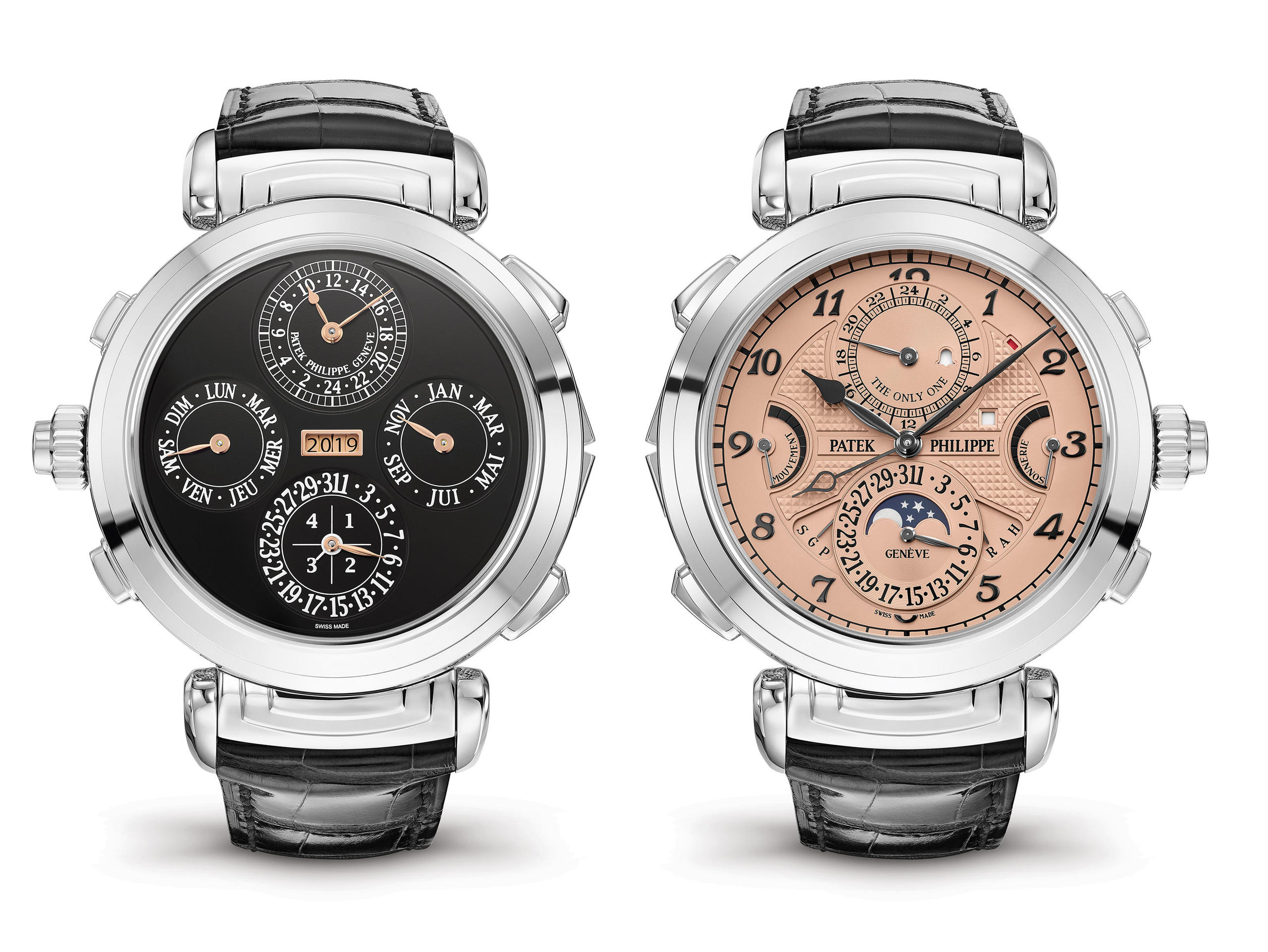
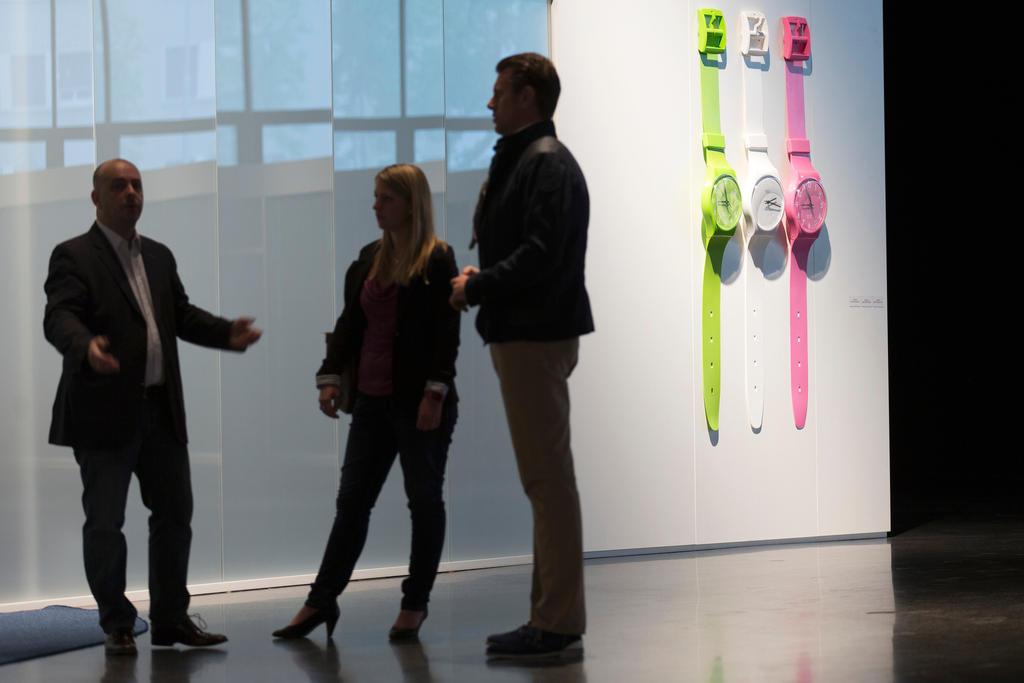
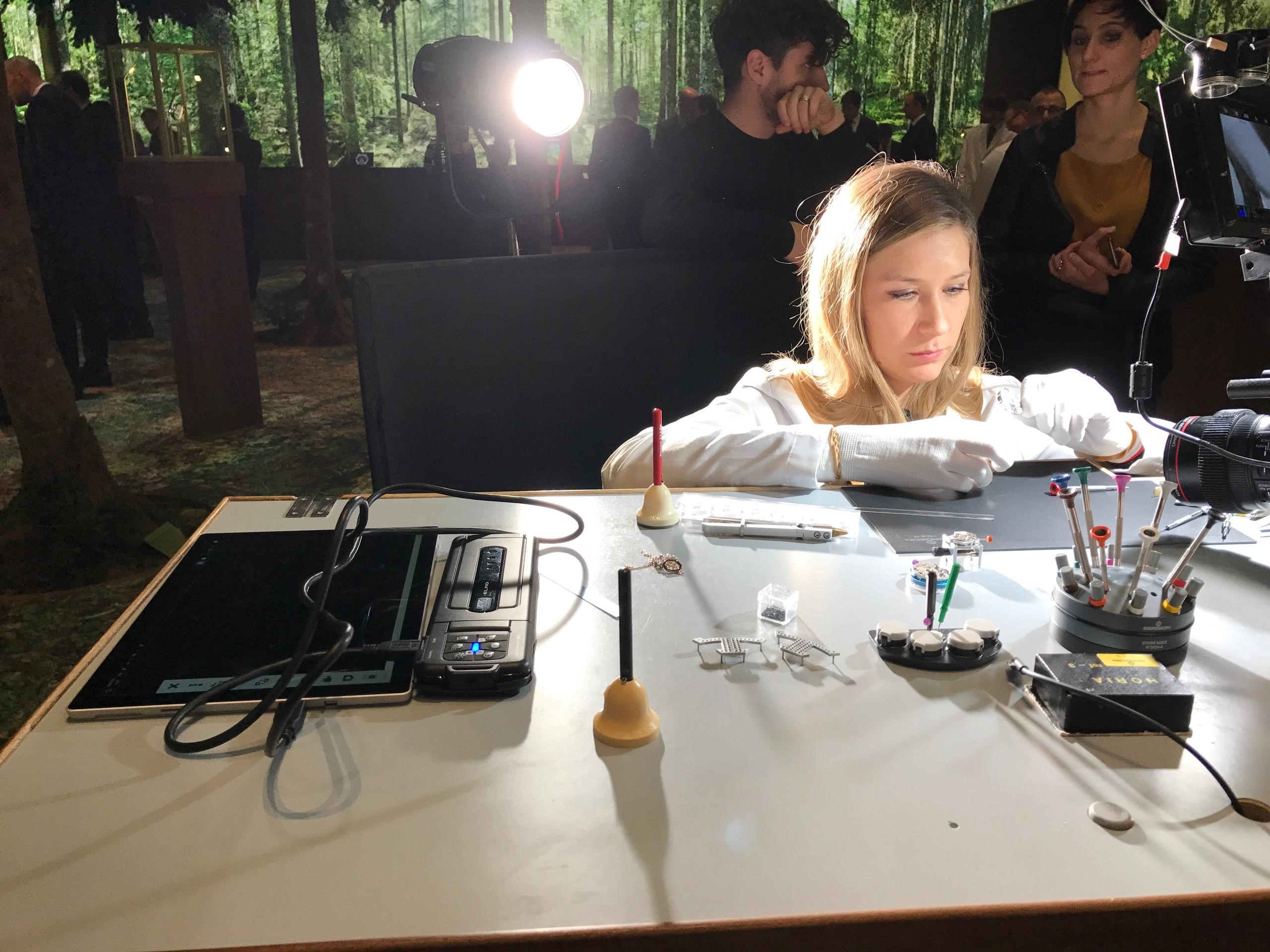

You can find an overview of ongoing debates with our journalists here . Please join us!
If you want to start a conversation about a topic raised in this article or want to report factual errors, email us at english@swissinfo.ch.